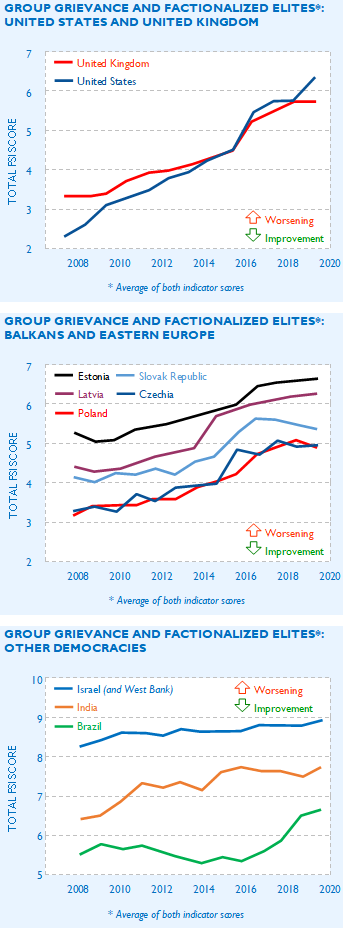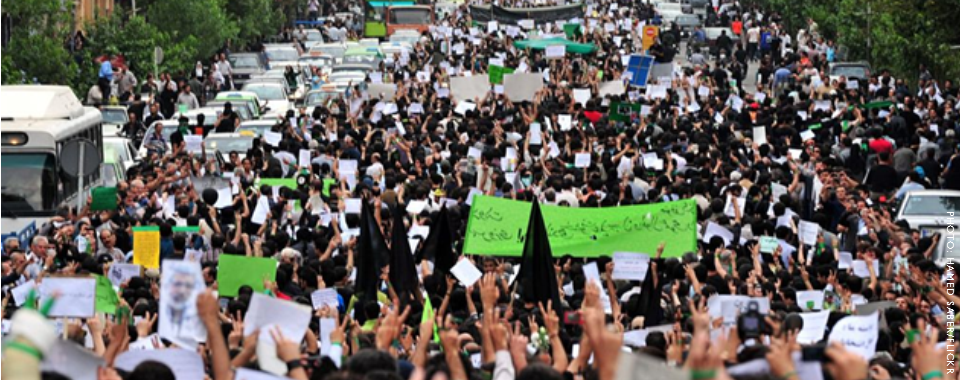BY NATE HAKEN
On debate stages, behind pulpits, in lecture halls, journals, books, and op-ed pages, experts and politicians grapple with causes, implications, and solutions to the issue of growing divisiveness across the world’s democracies. Some point to growing inequality and the need for safety nets in the face of demographic pressures and climate change. Others focus on antiquated or inadequate political structures, the breakdown in institutions, social fragmentation, or even moral decadence. But in the last 10 years, two major global shocks seem to have accelerated the overall trend. And now, with COVID 19, we face a third.
First, the 2008 financial crisis unleashed a wave of populism across the world’s democracies. While many political leaders and technocrats devised policies and plans to address the structural causes and help the affected, others sought villains to punish and scapegoats to banish. Second, in 2014, as millions fled war-torn Syria at an unprecedented scale, xenophobia and anti-immigration sentiment further complicated the urgency of the challenge. These two shocks have made it much more difficult to harness the political and social capital necessary to make the individual and collective sacrifices necessary to not only bounce back from shocks, but also to make fundamental changes to adjust to upheaval.
 In support of the general diagnosis (if not necessarily offering a prescription), the Fragile States Index (FSI) finds that 16 percent of all democracies[1] worsened significantly in both the Group Grievance and Factionalized Elites indicators between 2008-2019. This worsening is noticeable both in the West (particularly so in American politics and the Brexit campaign and outcome) as well as in Eastern European countries in proximity to Russia, which has fanned the flames to great effect, and continues to today.
In support of the general diagnosis (if not necessarily offering a prescription), the Fragile States Index (FSI) finds that 16 percent of all democracies[1] worsened significantly in both the Group Grievance and Factionalized Elites indicators between 2008-2019. This worsening is noticeable both in the West (particularly so in American politics and the Brexit campaign and outcome) as well as in Eastern European countries in proximity to Russia, which has fanned the flames to great effect, and continues to today.
This is not to say that all these countries are worsening overall on the FSI. Several, in fact, have a long-term trend of improvement (when you include indicators such as economic recovery and public services). And history does suggest that political consensus can, in some circumstances, be even more damaging than division – a consensus position can also be wrong. However, in cases where polarization leads to brinksmanship and/or gridlock, it becomes that much more difficult to take the necessary collective action to address deep structural challenges or to manage large-scale emergencies. Inclusive leadership and consensus-building must play a role.
In situations of fragmentation, the usual brokers (media, state institutions, opinion leaders, religious and community leaders) lose relevance and legitimacy, making consensus building difficult with no shared vision or context to build from and organize around. This can be further exacerbated by intentional or unintentional proliferation of misinformation and disinformation in the public sphere, including by partisan or external actors.
In the Baltic states for example, the intersection of partisanship and disinformation has entrenched divisions and populist sentiment. Latvia and Estonia are ethnically and politically divided, each with large Russian minorities. Estonia is famous for being among the first victims of a massive cyber onslaught in 2007, during which banks, newspapers, ministries, and other organizations were all targeted with denial of service and spamming, allegedly by groups associated with Russia. Long on the frontlines of information warfare, Estonia has become adept at resisting propaganda in the intervening years, yet polarization has nevertheless continued to grow. The nativist Conservative People’s Party of Estonia (EKRE) has incrementally gained in popularity through 2019, when it had the third largest representation in parliament with 19 MPs. In Latvia, the 2018 hacking of a Draugiem.lv, a popular social network, as well as the proliferation of Eurosceptic messages generally, has added to an environment of division and distrust, particularly during elections.
In Poland, the rightwing populist Law and Justice Party, headed by Jaroslaw Kaczynski, has emerged as the largest political party in parliament and has had an adversarial posture towards the judiciary, and flirted with nativism and authoritarianism. Reminiscent of American politics is the way in which both the liberal and conservative parties in Poland accuse each other of complicity with political and election interference by Russia. In the Czech Republic, anti-immigration and Euroscepticism has been a feature of the political landscape in recent years. President Miloš Zeman, in fact, has been dubbed the “troll president” for making controversial pro-Russia statements as well as performing stunts such as the ceremonial burning of a large pair of underpants and waving a fake machine gun at reporters. In 2019, there were massive protests in Prague against Prime Minister Andrej Babis for alleged corruption in connection to EU subsidies for a resort owned by a member of his family, among other scandals. In this context sensationalist media, “fake news,” and partisan spin, even in major online publications such as Parlamentní listy have reportedly added to the general confusion. Polarization in Slovakia spiked with the murder of journalist Ján Kuciak in 2018, who had been reporting on corrupt politicians, leading to massive street protests and the resignation of Prime Minister Robert Fico. Similarly, Hungary under the leadership of Prime Minister Viktor Orbán has also experienced a rise in nativism and a weakening of the democratic institutions of the state.
Meanwhile, in the West, many of the same dynamics are at play, whether that be toying with Euroscepticism, nativism, and anti-immigration, even to the point of electing leaders who take great pleasure in trolling the opposition through controversial statements and performative stunts. Institutions have been undermined. Constitutional crises have escalated. The media landscape has been rendered almost maximally partisan. In this environment, it is much easier to succumb to political scapegoating, deflection, and denial than to rally the Herculean effort necessary to address climate change, healthcare reform, inequality, and education, let alone a Coronavirus pandemic, or whatever happens next.
As we head into the new landscape that a global pandemic presents, collective action is more necessary than ever. Yet it remains to be seen whether out of the ashes of three global shocks in little more than a decade, citizens of the many global democracies under fire will rise to the challenge to find what unites us, or persist in allowing the politics of polarization and scapegoating to continue to divide us.
Endnotes
1. Democracies are defined as those designated by the Economist Intelligence Unit as “full” or “flawed” democracies in their 2008 report https://graphics.eiu.com/PDF/Democracy%20Index%202008.pdf
